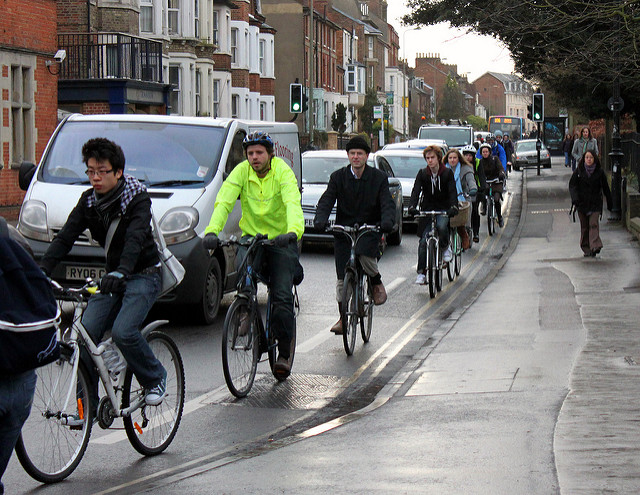

Throughout the UK, roadways are more congested than ever, but not with motorists alone. Many adults are utilising the roadways to bike, either for pleasure or to commute to and from work, but the rise in the number of road users has created some concern in several arenas. The most pressing is the fact that accidents between motorists and other road users like cyclists and pedestrians are on the rise. A recent report highlights these statistics, citing a five per cent increase in the number of accidents resulting in serious injury among cyclists on UK roads. In 2016 alone, more than 100 cyclists died in an accident with a motorist, and another 3,300 reported serious injury after colliding with a vehicle. These stark numbers point to a real need for change; however, the government’s focus is on another issue surrounding the use of UK roads.
In 2017, the Civil Liability Bill proposed by lawmakers spelled out a grave need for reducing the number of fraudulent personal injury claims against motorists and their insurance companies. The focus of the bill is whiplash reform, as this soft tissue injury is often easy to fake and has been included in compensation claims at an increasing rate over the last several years. The initial roll-out for the bill set for October 2018 has now been pushed back to April 2020, giving many a reason to celebrate. While the whiplash reform programme has some positive aspects, many believe it unfairly includes vulnerable road users, including cyclists, into the mix.
Reform highlights
The Civil Liability Bill introduced in 2017 has several components, but the main focus is the need to reduce fraudulent whiplash claims relating to road traffic accidents. Whiplash often takes place after an individual has experienced a car accident, but the injury has been cited as an easy way to claim for compensation that may not truly be due to the accident victim. The proposed bill is meant to reduce the number of frivolous whiplash claims by fundamentally changing how compensation claims are processed.
Under the new reform, the biggest change in legislation revolves around the small claims court limit. Historically, the threshold for small claims court has been set at £1,000, meaning any claims above that amount were moved to civil court. The reform proposes an increase to the small claims court limit, up to £5,000, with the intent of decreasing the number of whiplash claims that can be brought with the help of legal representation. The proposed bill also requires medical evidence of whiplash after a road traffic accident, as well as a need to prove valuation of a claim for compensation. These tactics may indeed decrease the total number of whiplash claims, helping reduce fraud over time, but vulnerable road users including cyclists lose out in the deal.
Cycling accident victims and implications
Cyclists rarely experience whiplash after an incident with another road user, which a group of bike accident claims solicitors says is part of the reason the reform is not appropriate as it stands. Many cyclists involved in a road traffic accident have different injuries, ranging from broken wrists and ankles to broken collarbones and head injuries. Cyclists often see damage to their bike and clothing due to an accident, and they may have a loss of earnings while rehabilitating after an injury takes place. These issues are not explicitly addressed in the whiplash reform bill, nor is the reality that cyclists’ claims do not meet the new small claims court limits.
Under the proposed bill, cyclists stand to lose out the most because of these issues. The valuation of a claim in small claims court only includes the compensation for an injury. In 70% of cyclist accident claims, their injuries do not exceed £5,000 and so they may then be forced to go through the claims process without legal representation. If they do decide to use s solicitor to assist with their accident injury claim, their total compensation may be greatly reduced because they cannot recoup legal costs in small claims court. The reform blatantly overlooks these issues impacting cyclists and their ability to claim for compensation after an accident.
A nod to big insurance
While the whiplash reform programme is presented in a way which seems beneficial for road users, that is not the whole truth. Insurance companies and government leaders have been lobbying for a change in the personal injury landscape for years, citing a reduction in frivolous claims trickles down to savings for motorists. When insurance companies do not have to spend their money on settlement costs related to whiplash, they pass on the reduction in cost to drivers in the form of lower insurance premiums.
The reality is, however, that insurance expenses will not decrease as a result of whiplash reform, but instead, motorists will see little change. At the same time, vulnerable road users are left to fend for themselves in small claims court under the new programme. With the delay in implementing the reform, many have decided to speak out against it in the hopes that cyclists and other non-motorists on the road will have some protection, not penalisation, under the bill.
Image: Cycling Oxford cc by Tejvan Pettinger on Flickr